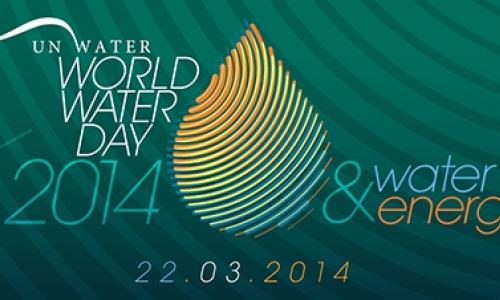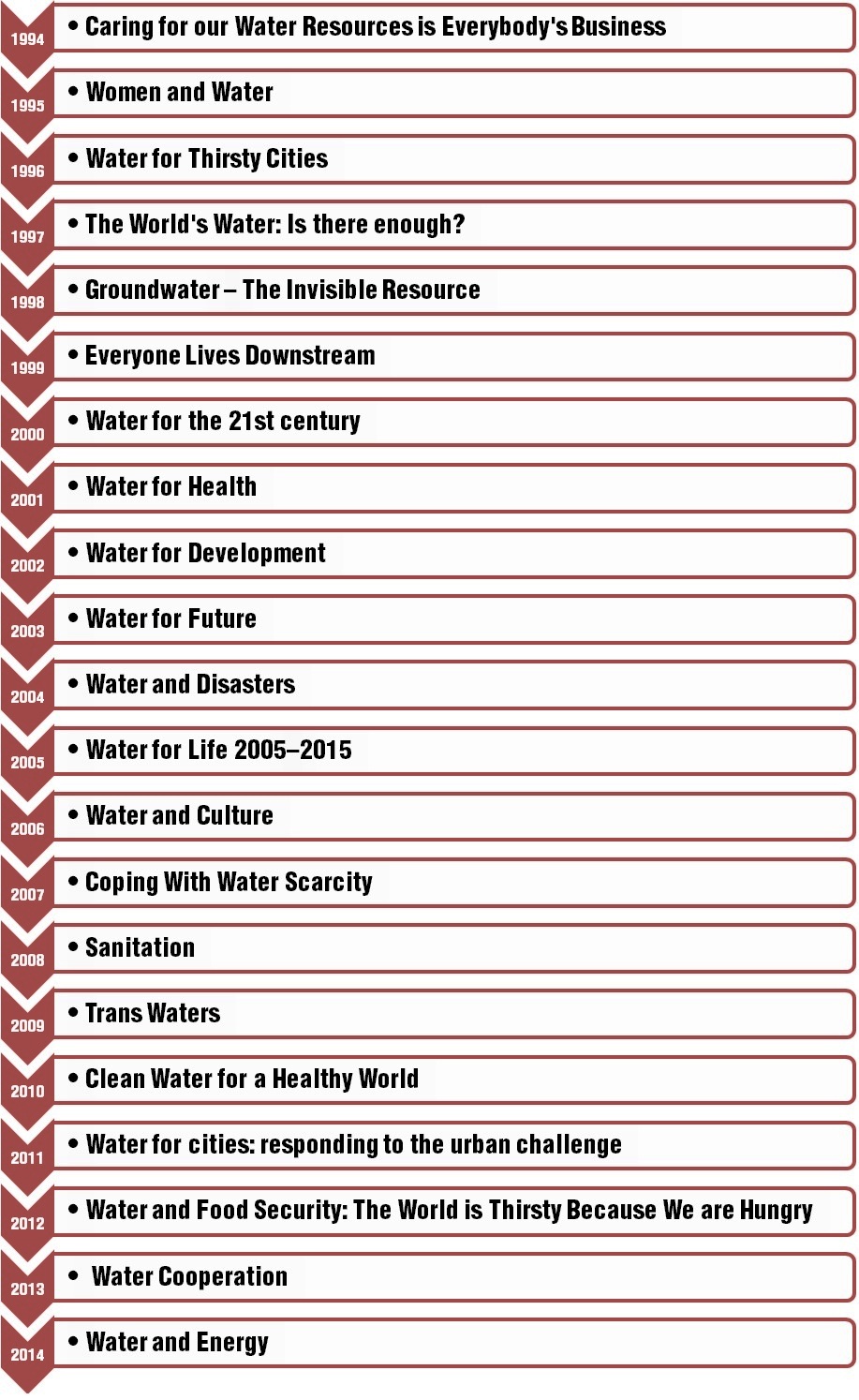
World Water Day is celebrated every year on March 22 since 1993, when the United Nations declared it as "World Day for Water". This day was first formally proposed in Agenda 21 of the 1992 United Nations Conference on Environment and Development (UNCED) in Rio de Janeiro, Brazil. People started observing it in 1993 and since then, there has been a significant growth in its importance.
Countries devote this day to implement UN recommendations through specific activities relating the world's water resources. Each year, one of various UN agencies involved in water issues takes the lead in promoting and coordinating international activities. Since its inception in 2003, UN-Water has been responsible for selecting the theme, message and lead UN agency for this day (Wikipedia). In addition to the UN member states, a number of NGOs promoting clean water, have used the day to focus public attention on critical water issues.

Various activities like, walkathons, conferences, seminars, guided walks through water bodies, painting competitions, debates and the like are conducted to raise awareness about fresh water resources and the need to conserve the same.
World Water Day over the years
In 2013, to mark the year of water cooperation, several events were held in different parts of India including a seminar on groundwater recharging at the Sardar Vallabhbhai National Institute of Technology, Surat, Gujarat and a national science seminar at Nehru Science Centre, Mumbai. School children took part in the Parivartan campaign by holding placards with messages to people about becoming water-wise.
In 2012, the UN-Water 'Water for Life' Best Practices Award were given to projects involved in best water management practices. This was awarded to: Protection of Bangalore lakes for posterity – setting a legal precedent for conservation of lakes as a common resource.
In 2011 scores of people walked on the Rajpath from India Gate till Vijay Chowk as part of 'Walk for Water 2011', ahead of World Water Day. Shouting slogans, people of Delhi pledged to make Delhi completely water secure and self-sufficient in water over next five years - 'The Blue Delhi Declaration'.
World Water Day 2014
The theme for 2014 is ‘Water and Energy’. Water an energy are very closely interlinked since energy generation in the form hydroelectric energy and thermal energy requires water. Similarly, we need energy to pump water to make it available at different places away from the source of water. In 2014, the UN is working closely with its member nations to address issue of access to safe and sustainable water and energy to those who are at the bottom of the pyramid living in slums and rural areas. In the current year, particular attention is being paid to identify best practices that can make a water- and energy-efficient 'Green Industry' a reality.
Objectives of World Water Day 2014
- Raise awareness of the inter-linkages between water and energy
- Contribute to a policy dialogue that focuses on the broad range of issues related to the nexus of water and energy
- Demonstrate to decision makers in the energy sector and the water domain through case studies, that integrated approaches and solutions to water-energy issues can achieve greater economic and social impacts
- Identify policy formulation and capacity development issues in which the UN system, in particular UN-Water and UN-Energy, can offer significant contributions
- Identify key stakeholders in the water-energy nexus and actively engaging them in further developing the water-energy linkages
- Contribute as relevant to the post-2015 discussions in relation to the water-energy nexus.
What are we doing for World Water Day 2014?
Come March 22nd, our distributed team spread across different parts of India will engage with local communities via seminars, workshops, conferences and other such events along with other leading organisations who have brought momentum to the story and narrative of water. More details on these events can be viewed at the the UN World Water Day events directory.
Since water is a very local topic, issues, solutions and experiences also vary from place to place. Our team constantly tries to build and spread this knowledge found in villages, cities and metropolitans while acting as a medium of dissemination, dialogue and engagement.
We will constantly update this page with information from all our events across India, so stay tuned!
Share stories of water conservation efforts in your community with us.









